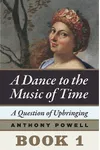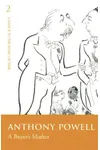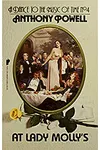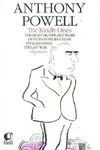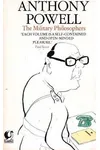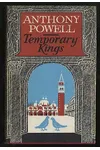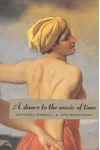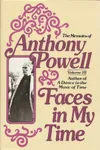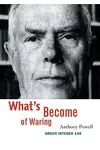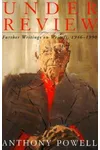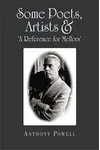Picture a British storyteller who spun a dazzling tapestry of high society and bohemian life across a twelve-volume masterpiece—meet Anthony Powell! Born in 1905, this sharp-witted novelist captured the quirks and complexities of English life with a satirical edge, earning him a spot among the 20th century’s literary greats. His magnum opus, A Dance to the Music of Time, is like a grand social waltz, swirling with characters and wit.
Powell’s knack for observing human behavior made him a unique voice, often compared to Marcel Proust for his focus on time and society. Ready to dive into the world of this literary gem? Let’s explore his life, works, and lasting charm!
The Making of Anthony Powell
Anthony Dymoke Powell was born on December 21, 1905, in Westminster, London, to a military father and a mother from a wealthy Lincolnshire family. His early years followed his father’s postings, giving young Anthony a front-row seat to shifting social landscapes. Educated at Eton and Balliol College, Oxford, he rubbed shoulders with future literary stars like Evelyn Waugh and Graham Greene. After Oxford, Powell dove into London’s publishing scene at Duckworth, kickstarting his writing career with his debut novel, Afternoon Men (1931), a cheeky glimpse into bohemian circles.
Before becoming a full-time novelist, Powell dabbled in journalism and scriptwriting, even trying his luck in Hollywood. World War II paused his fiction, but his service in the Welsh Regiment and Intelligence Corps fueled his later works. These experiences shaped his keen eye for social dynamics and historical shifts.
Anthony Powell’s Unforgettable Stories
Powell’s crown jewel, A Dance to the Music of Time (1951–1975), is a twelve-volume saga inspired by Nicolas Poussin’s painting. Narrated by Nicholas Jenkins, a stand-in for Powell, it traces upper-middle-class life from the 1920s to the 1970s. With sharp satire and humor, it captures friendships, rivalries, and the fleeting nature of connections—like fish darting through a tank, as Waugh vividly put it. The series’ sprawling cast, including the unforgettable Widmerpool, brings England’s social evolution to life.
Before Dance, Powell penned witty prewar novels like Afternoon Men, a satirical take on aimless bohemians, and Venusberg (1932), a comedic romp through European diplomacy. From a View to a Death (1933) tackled rural gentry with dark humor. Later, The Fisher King (1986) wove Arthurian legend into a modern tale of friendship. Powell’s style—detached yet sympathetic, with deadpan dialogue—made his characters feel alive and relatable.
His nonfiction, like John Aubrey and His Friends (1948), showed his love for 17th-century eccentrics, influencing his novelistic focus on quirky personalities. Powell’s memoirs and journals, brimming with literary gossip, cemented his reputation as a cultural chronicler.
Why Anthony Powell Matters
Powell’s work resonates for its vivid portrayal of a vanishing English elite, blending high society with bohemian flair. His ability to balance personal stories with historical sweep earned praise from fans like Christopher Hitchens and Clive James, who called Dance a modern masterpiece. Marxist historians admired its meticulous social analysis, proving Powell’s appeal across ideological lines.
Despite a dip in popularity after his death in 2000, Powell’s legacy endures through adaptations, like the 1997 Channel 4 series of Dance, and the Anthony Powell Society’s global efforts. His collage art and literary friendships with Orwell, Larkin, and Waugh add layers to his influence, making him a touchstone for understanding 20th-century Britain.
- Born: December 21, 1905, Westminster, London
- Key Works: A Dance to the Music of Time, Afternoon Men, The Fisher King
- Awards: CBE (1956), Companion of Honour (1988)
- Died: March 28, 2000, The Chantry, Somerset
Snag A Question of Upbringing, the first volume of A Dance to the Music of Time, and waltz into Powell’s witty, satirical world! You’ll be hooked on his sharp take on human nature.
